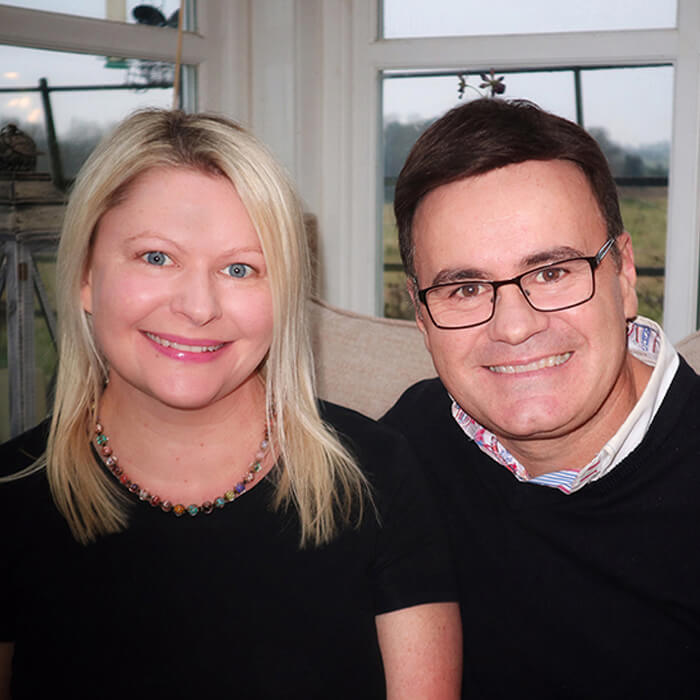
by Guest contributor | Feb 25, 2014 | Career and mindset
I can almost guarantee the majority of you reading this would agree with the question posed. We are repeatedly conditioned to believe that having doubt means ‘don’t’. Be it from early childhood or adulthood, social media or those around us, we learn that experiencing feelings of doubt means the decision we are about to make must mean something’s wrong.
As a life and wellness coach, I encounter many layers of doubt and the uncertainly that holds us back and have learned that doubt is often mistaken as ‘gut feelings/intuition’. However, when broken down we can also refer to doubt as fear, fear of making the wrong decision.
I frequently encounter three types of fears that we meet throughout life; they are ‘What If?’, ‘Rock the Boat’ and ‘It’s Time to Go’ fears.
‘What If’ fears typically sound like ‘What if I’m not good enough?’ ‘What if I’m doing something that isn’t worth it in the long run?’ or the reoccurring question ‘What if I’m feeling like this because he/she isn’t the one?’ These fears are future based and generally focus on something that is unknown to the individual and are rather illogical. Most individuals will come across these fears during their lives, however the more self-examining a person typically is, the more ‘What If’ fears are present.
‘Rock the Boat’ fears exist when we don’t want to do something in trepidation of the consequence. These are things like not telling someone they’ve hurt your feelings or disappointed you when they consistently cancel plans or make a casual comment that you’ve taken personally. You may let it slide because you’re nervous they’ll end the friendship or because it’s easier to keep the peace. Or maybe you’ve not stood up to your boss when they set an unrealistic expectation out of fear you’ll be labeled undedicated or uncooperative. Maybe you’ve not told your significant other how hurt you felt over an action or remark they made in fear of not wanting to start an argument.
By not wanting to ‘Rock the Boat’ these fears ultimately make an individual say ‘No’ to what they want in favour of pleasing others.
Lastly, ‘It’s Time to Go’ fears are red flags and don’t accompany an internal question as they’re immediate and logical. Red flag fears can be entering into or participating in something that goes against your core values or situations where your personal safety is at risk or in danger. These situations are your body’s ‘fight or flight mode’ and are easily identifiable.
Doubt/fear needn’t be controlling and can serve positive purpose, leading to many significant constructive transformations (personal and professional). Whenever fear based thoughts creep in I urge you to challenge them until you understand them, but also permit yourself to leave ‘Red Flag’ situations.
Remember, every doubt/fear allows you the opportunity to discover more about yourself and what it is you truly want which adds up to living a life of your creation!
About the author
Megan Luscombe is a professional life and wellness coach at Starting Today Coaching. Melbourne based, Megan assists her clients in making positive transformations in their personal life, relationships and careers. Follow her on Facebook.
We’d love to hear from you – if you have a question or comment, please drop us a line in the comments box below, or find us on FACEBOOK or TWITTER.

by Guest contributor | Feb 24, 2014 | Travel Live Learn in the media
Everybody’s doing it. You can’t look at social media, industry journals or a magazine that you don’t see authors using their new books as a means of getting attention. Don’t be jealous! With the help of this article, a topic and a computer, you can do the very same thing.
It’s important to first organize your thoughts around your book. In order to clarify your topic and focus your message, answer the following questions. The more deeply you dig into your motives, the better prepared you will be to take your book idea to the next level.
Book description
Write a short synopsis of the book, just a few paragraphs will do. If you have pages and pages of the description, you haven’t clarified your book enough. Keep writing, rereading and editing to get to the heart of the book.
Why are you writing this book?
What is your motivation behind this undertaking? This is another question that requires you to get specific. Many people don’t take the time to explore this question and end up with a book that doesn’t grab the reader or help the author reach their personal and professional goals.
Why are you the right person to write this book?
What experiences, education, unique viewpoint, or successes regarding the topic do you have to share? Why are you the right person to deliver this message or address this topic?
What are you specifically bringing to the reader that they don’t already have?
Are you helping people save time, money, or effort? Are you offering a new way to do something? Are you helping your reader solve a problem, meet a challenge or overcome a roadblock? Maybe you’re just entertaining the reader and that’s okay too.
What are your ideas for marketing your book?
Are there any obvious channels that you can think of, off the top of your head that would help you sell your book? If you have access to lots of people, are a member of a large group or know people who are it’s a good idea to start creating a list.
What are your wildest dreams as a result of this book?
Many people focus so much on the possible that they under estimate their book and themselves. Don’t start the book writing process with a compromise. Dream big and you may reach some pretty lofty goals.
Congratulations!
Now that you’re well on your way to solidifying your message and initial ideas for your book, you’ll want to stay tuned for Step Two – Understanding Your Reader.
About the author
Speaker, author, TV host of Focus Forward, Lauri Flaquer has extensive entrepreneurial and media experience. As founder of Saltar Solutions, she guides her clientele of international business owners to excel as entrepreneurs. Formally in TV production at NBC, CNBC and Bloomberg LP, Lauri produces/ hosts Focus Forward, a show dedicated to helping entrepreneurs soar! Lauri has been the publicist and marketing director for several best-selling book campaigns. To learn more about marketing contact Lauri or Tweet her, @SaltarSolutions.
Are you in the process of writing a book, or have you just finished one? We’d love it if you left a comment below, or found us on Facebook or Twitter. And if you think others would find this series useful, go ahead and share :-)
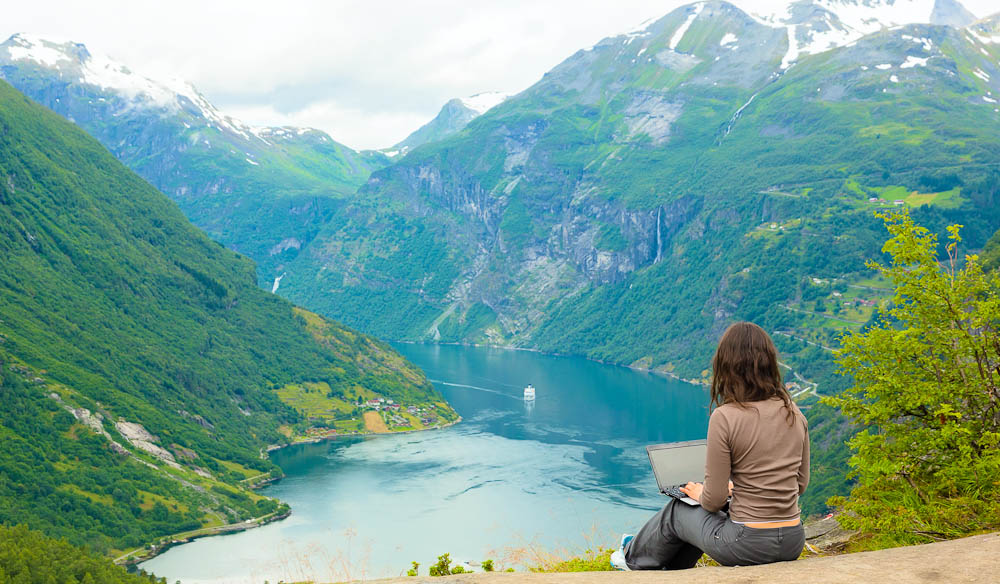
by Sarah Blinco | Feb 10, 2014 | Creative travel experiences, Travel blogger destinations, Travel Live Learn in the media
This evening I was lucky enough to attend a seminar, How to write a Lonely Planet guide, hosted by Intrepid Travel and featuring acclaimed author, journalist and presenter, Frances Linzee Gordon.
What she said:
[true sentiments on ‘travel’]
“Travel is addictive because of the adventure, self discovery, serendipity, fun, opportunities and stimulation that every day brings.
Travel is like making a new friend – you always listen out for the place in the news, you want to return, and you care about what happens there.
To write about a place you need to be saturated in it – learn some of the language, speak to/interview everyone, understand general costs of living etc.
Keep an ‘as you go’ diary to note down fresh impressions so when you’re tired and go to write up a feature you don’t forget things. Include details, colour, a local feel. Use the writer’s muscle – the more you use it, the better you are.”
[writer / traveller action points]
- Keep a Diary – for fresh impressions on the road.
- If you don’t have writing experience, consider taking a course.
- Photography course – a great idea because your stories are more marketable with images. Also, you can sell to image libraries (eg. Getty, Lonely Planet) for extra income (because a travel writer’s income is limited).
- Learn a language(s).
- Enjoy the moment (adhere to the concept of ‘mindfulness’)– it’s easy to worry about money, going home, terrorists etc. – but stop and take in the amazing things you have in the moment.
- Choose to support local businesses and industry.
- Try everything – dance, eat – go outside your personality.
- Enjoy – be safe without being paranoid, don’t be budget obsessed, be inconspicuous and be open to everything.

[Keep in mind…]
- Beware: check local conditions before travel (eg. Disease, weather, crime).
- Double check passport / copies accessible.
- You’re more vulnerable to local threats if you look like a tourist. ‘When in Rome’… and be aware of what different clothes, or smoking / drinking in public may represent in some areas of the world.
- Support is often not readily available so understand what emergency services etc are/aren’t available.
- Arrange all relevant health vaccinations, dentist etc. 6 weeks prior to leaving.
- Travel insurance – critical – but also check your insurance covers your proposed activities (eg. If you are going skiing, diving and so on, carefully check the terms because you can be caught out).
- Research where you’re going.
- Pack carefully – make a list then pack in ten minutes to avoid unnecessary extras.
- Be aware of scams.
- Always tell someone where you’re going.
- Leave valuables behind, only carry money.
- Stay in touch with home / leave an itinerary.
- Make friends with the hotel manager – they are good for safety tips, local information and many other things.
[some final tips]
1. Especially in ‘hot’ places keep an eye on local press and talk regarding what’s going on – they’ll pick up on issues or uprisings etc. before national or international press.
2. Visit local tourist organisations and introduce yourself, say where you’re going, what you’re doing and ask for a letter for introduction. It can come in handy in sticky situations or if you’re in trouble.
3. 3-second rule (trust your gut) – look someone in the eye for three seconds, make a character judgement – stick with that impression no matter what.
4. Be careful when taking photos – you’re often not concentrating on what’s happening around you in order to capture ‘the shot’, so in pairs keep an eye out for each other so that no one is being robbed while they are photographing something.
5. Photo tips – make people laugh, use alternative angles and look for different places to take photos of famous landmarks (i.e. alternative vantage points from where most tourists are directed to take shots). Always ask for permission before taking someone’s photo.
6. When in a restaurant write notes – you look like a food critic and are more likely to receive better service!
How to write a Lonely Planet guide
Serious about being an author for Lonely Planet? Their recruitment notes on how to write a Lonely Planet guide state:
- All applications are read: lonelyplanet.com/jobs
- You must demonstrate passion for travel
- You must demonstrate destination knowledge
- Writing experience required
- Evidence of ‘special expertise’ (eg. Language, rock climbing, diving, other special interests, e.g. Lived, travelled, written; any evidence of independent travel)
- Always meet deadlines and word count
- NB. LP publications use simple sentences and language – be mindful they’re usually translated.
[This is a re-post from the archives. Originally posted July 13 2011, London]
by Sarah Blinco | Feb 4, 2014 | Travel blogger destinations, Travel Live Learn in the media
**this competition is now closed**
Writing competition 2014 Are you inspired?

–> this competition has now closed <–
Want your first piece of published work to appear in print for thousands of readers to see? We’re hosting a brand new competition for under 20s! SIX talented content creators from across Australia will each WIN a media star prize pack including:
1. Your piece published on the widely read travel and lifestyle site, www.travellivelearn.com and subsequent promotion throughout our associated media and education networks. This will also serve as a published piece which you can feature in your portfolio!
2. A personalised digital career mentoring session with a trainer and media professional from Media Bootcamp who will provide suggestions on what you could be doing now in pursuit of your dream career in media, magazines, communications or publishing.
3. A winner certificate.
4. A copy of popular Aussie media (radio, print, television) personality, Meshel Laurie’s new memoir, The Fence-Painting Fortnight of Destiny.
5. And a chic fragrance from So…?
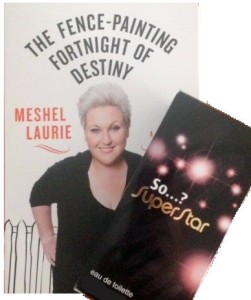
What are you waiting for? Enter now and showcase your talent to Australia and the world!
THE RULES
You must be an Australian resident aged between 16 and 20 to enter. If you are turning 16 this year you are eligible to enter also. You will submit a piece of written work, no longer than 500 words. Your piece can be any format – interview, poem, fiction, essay, personal story… anything you like, but it must relate to the theme “INSPIRE”. Entries open Tuesday 4 February and close Friday 28 February at 5pm EST. Entries will be judged by a panel of published authors and representatives from working Australian media, and will be critiqued on creativity and uniqueness, how compelling they are, quality of writing, attention to detail and presentation. The decision made by the judges is final, and there will be no revision of this decision. Stories must be your own original work. You confirm that your entry has never been previously published or broadcast in any form such as a book or eBook. However, you may enter work that has been published on your personal blog, but not elsewhere. You may not enter work that has previously won a prize. One entry per person only. Incomplete forms or entries will not be accepted. Copyright in all submissions to the competition remains with the respective entrants. However, entering the competition allows Sugoi Media and TravelLiveLearn.com the right to feature any or all of the submissions in any of our associated publications, websites, social media and/or in any promotional material connected to this competition. Entrants will be added to the Media Bootcamp mailing list but may unsubscribe at any time. If you are a winner, physical prizes will be posted to you via Australia Post. Promoter takes no responsibility for lost-in-the-mail prizes. Prizes are not transferable for cash, and cannot be transferred to another person. Please note, The Fence-Painting Fortnight of Destiny does include mild use of coarse language and adult themes (drug and sexual references); Winners will be required to confirm that they/their families are happy to receive it (if not, the prize will not be replaced with another). Digital mentoring session comprises an email exchange(s) featuring personalised advice and action points with particular reference to winner’s goals. If you win, you are the only person who can redeem the prize. By entering it is understood that you agree with these terms and conditions.
Why not join our FACEBOOK community to keep an eye on this competition’s progress and learn about future opportunities?! Just click LIKE on the Facebook link to the right.
This competition is brought to you by Sugoi Media, Media Bootcamp, Get it Magazine, Get it Media, TravelLiveLearn.com, Hot Tamale Media Australia Pty Ltd
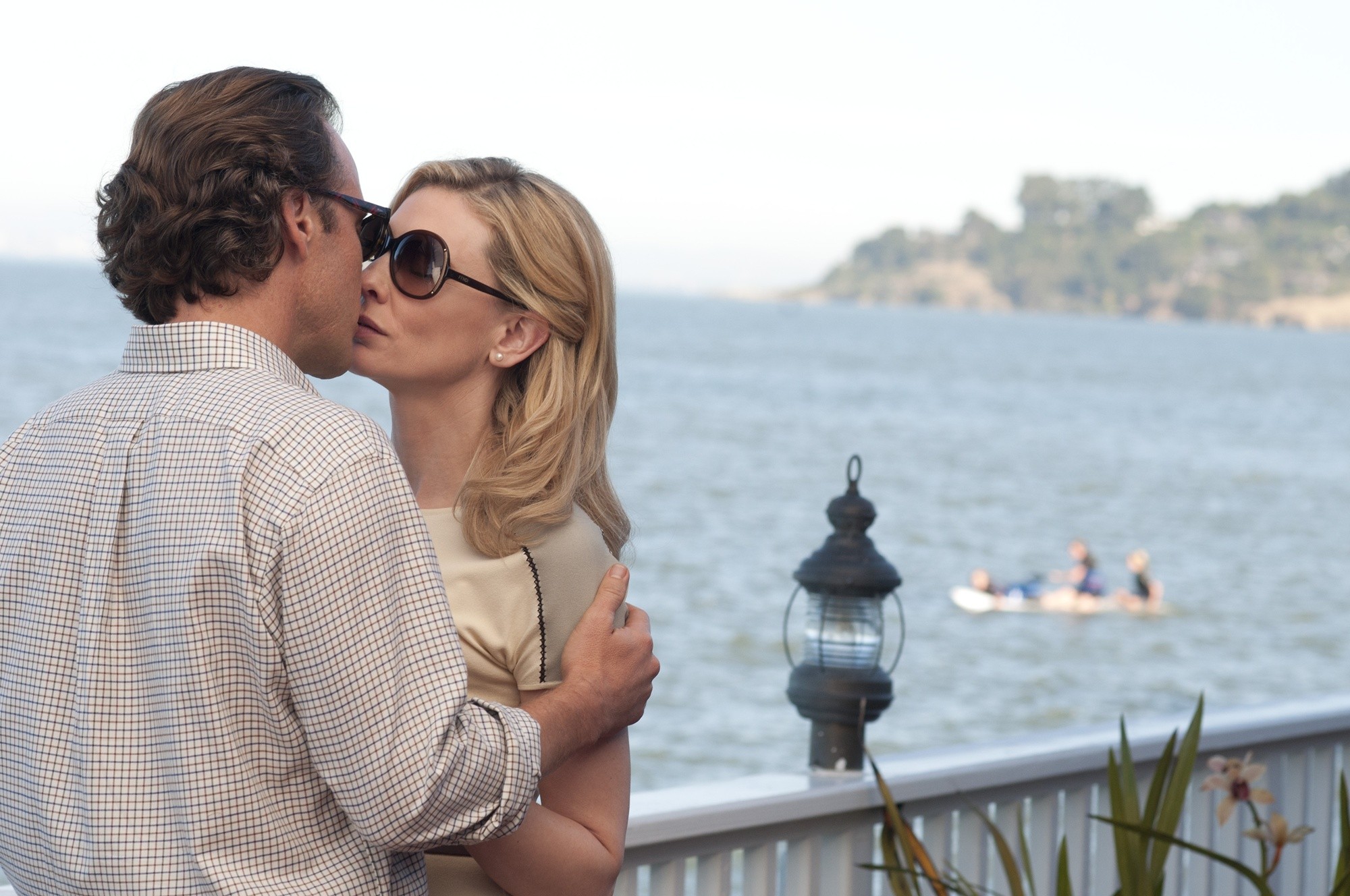
by Sarah Blinco | Feb 4, 2014 | Travel blogger destinations
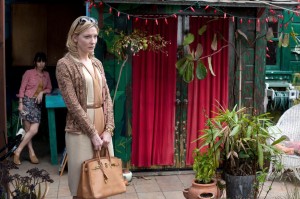
We watched Woody Allen’s Blue Jasmine over the weekend which lived up to its promise of being a character driven comedy/drama with wonderful performances, but with an ending that left a little to be desired. In fact, the ending was so odd that I was driven to the Internet to see what others had to say about it, and regardless of us not loving (nor hating) the film, my partner and I have been talking about it ever since. [SPOILER ALERT] The film seemed to end in the same place it began, with Cate Blanchett’s character, Jasmine, mad, sad and alone. Are we to assume that’s how her life remained?
Many of the reviews I read mentioned this story somewhat mirrors that of Tennessee Williams’ A Streetcar Named Desire, but as I’m not overly familiar with it, I’ll leave the rest up to your judgement once you’re familiar with both pieces of work. As far as this film goes though, essentially it tells the story of Jasmine who has experienced a colossal fall from grace. In reality the character isn’t the nicest of human beings, but Cate’s portrayal makes Jasmine just that – very human, and therefore you do indeed feel much empathy for her. Cate Blanchett is simply wonderful in the film, and in my view, deserves the awards she’s won for it so far, including a Golden Globe.
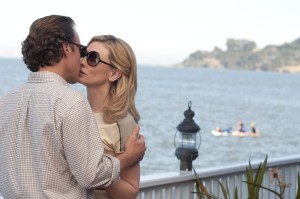 The numerous reviews I read about Blue Jasmine talked of Jasmine’s departure from New York high society and her inability to cope without money or status; she has few skills to apply to the workplace, but doesn’t fit well in the workforce anyway. What I haven’t read about however, is that I felt the character represented one of those people who has a chance to start again, but they’re so consumed by their own misery that they can’t get over unreasonable dislike or judgement of other people, and they certainly can’t recognise an opportunity to embrace positive change. Sadly, they are unable to acknowledge the past and own its horrors and mistakes, and therefore get caught up forever in an unrealistic vision of the future, mad, sad and alone.
The numerous reviews I read about Blue Jasmine talked of Jasmine’s departure from New York high society and her inability to cope without money or status; she has few skills to apply to the workplace, but doesn’t fit well in the workforce anyway. What I haven’t read about however, is that I felt the character represented one of those people who has a chance to start again, but they’re so consumed by their own misery that they can’t get over unreasonable dislike or judgement of other people, and they certainly can’t recognise an opportunity to embrace positive change. Sadly, they are unable to acknowledge the past and own its horrors and mistakes, and therefore get caught up forever in an unrealistic vision of the future, mad, sad and alone.
Blue Jasmine, also starring Alec Baldwin, Peter Sarsgaard and Sally Hawkins, I think is worth seeing. There are characters in it that you’ll recognise from life, and who you’ll possibly develop a new empathy for. If nothing else, Cate Blanchett’s performance is worth seeing the movie for. And I’d suggest, the film offers lessons in what not to do when you’re given a second chance, as hazy as it may appear.
If you’ve seen it, I’d love to know your thoughts and theories? Drop me a line in the comments below or on Facebook or Twitter.
By Sarah Blinco








 The numerous reviews I read about Blue Jasmine talked of Jasmine’s departure from New York high society and her inability to cope without money or status; she has few skills to apply to the workplace, but doesn’t fit well in the workforce anyway. What I haven’t read about however, is that I felt the character represented one of those people who has a chance to start again, but they’re so consumed by their own misery that they can’t get over unreasonable dislike or judgement of other people, and they certainly can’t recognise an opportunity to embrace positive change. Sadly, they are unable to acknowledge the past and own its horrors and mistakes, and therefore get caught up forever in an unrealistic vision of the future, mad, sad and alone.
The numerous reviews I read about Blue Jasmine talked of Jasmine’s departure from New York high society and her inability to cope without money or status; she has few skills to apply to the workplace, but doesn’t fit well in the workforce anyway. What I haven’t read about however, is that I felt the character represented one of those people who has a chance to start again, but they’re so consumed by their own misery that they can’t get over unreasonable dislike or judgement of other people, and they certainly can’t recognise an opportunity to embrace positive change. Sadly, they are unable to acknowledge the past and own its horrors and mistakes, and therefore get caught up forever in an unrealistic vision of the future, mad, sad and alone.